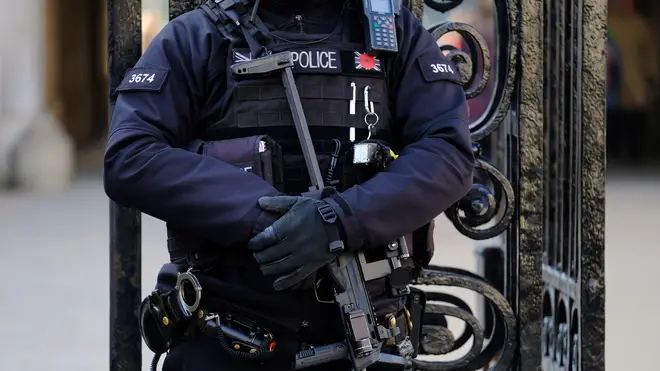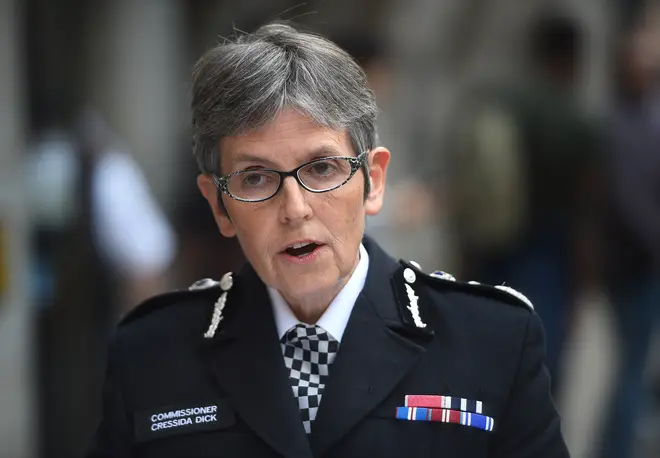
Ali Miraj 6pm - 9pm
20 November 2019, 09:10 | Updated: 21 November 2019, 18:16

The UK has remained in the top 30 countries affected by terrorism, an international index has said.
Despite the terror threat being reduced to "substantial" earlier this month, the UK was still ranked at 28th out of 163 nations on the list on the latest Global Terrorism Index (GTI).
It found that found that far-right extremism is on the rise in the West, with the number of people arrested for right-wing terrorism in Europe rising for the third year in a row.
There were also nearly three times as many counter-terrorism operations related to right-wing extremism in 2017/18 compared to the two previous years.
In the UK, official figures show that in the year to June 30, just under 25 per cent of the 266 terrorism arrests were linked to far-right extremism, a rise of 9 per cent from the year previous.
Currently around one in 10 of police counter-terrorism investigations in the UK are linked to the far right, up from around 6 per cent in 2017/18.

The number of disrupted plots linked to the ideology has also increased, with four stopped so far in 2019 alone.
In October, Metropolitan Police Commissioner Cressida Dick said that 24 plots had been foiled since March - 16 Islamist and eight extreme-right wing.
In January, head of UK counter-terrorism policing Neil Basu had said that 14 Islamist-inspired attacks had been stopped, and four far right.
The proportion of people being referred to the Government's counter-extremism programme Prevent for holding far-right terrorist beliefs has also gone up.
In 2015/16, 10 per cent of referrals were linked to far-right beliefs, whereas in 2017/18 it rose to 18 per cent, and is expected to increase again this year.
Counter terrorism policing's head of CT intelligence, DS Gareth Rees, said: "Despite still being a relatively small percentage of our overall demand, we have seen a significant growth in the threat from right-wing terrorism to the UK.
"The fact that eight of the 24 attack plots foiled by police and the security services since 2017 were related to right-wing terrorism lays bare why we are taking this threat so seriously.
"We have always been focused upon this threat, but an increasing amount of CTP's resources are dedicated to it since the 2017 reviews, while our partners in the Security Service have also stepped up their involvement in tackling it.
"Together, we are bringing the full might of the UK CT machine to bear against those extremists of any ideology who wish to do us harm or incite violence."
The GTI defines terrorism as "the threatened or actual use of illegal force and violence by a non-state actor to attain a political, economic, religious or social goal through fear, coercion or intimidation."
Steve Killelea, chairman of think tank Institute for Economics and Peace that publishes the report, said that there were 95 incidents in the UK that it would class as terrorism in 2018, the vast majority of which were in Northern Ireland.
For the first time since 2003 Iraq was not the worst-affected country on the index, with Afghanistan ranked as the nation that has suffered the most.
This was reflected in the Taliban being behind the most terror-related deaths in 2018, moving ahead of the so-called Islamic State, although overall the number of terror-related fatalities dropped by 52%.